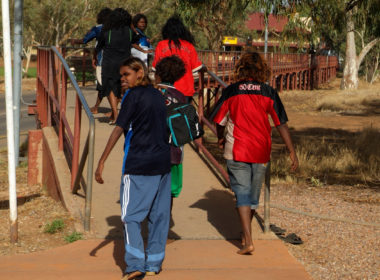Re-thinking ‘punishment’: Exploring alternative approaches to sentencing
The purposes of sentencing, which are set out under Section 3A of the Crimes (Sentencing Procedure) Act 1999, include that the offender is adequately punished for the offence, their conduct denounced, and both general and specific deterrence are achieved. Importantly, one purpose of sentencing under section 3A is ‘to promote the rehabilitation of the offender’.
On 25 September 2023, the NSW Young Lawyers Criminal Law Sub-Committee held a Speaker Panel Event that brought together varied perspectives from the NSW criminal justice system to explore approaches to sentencing that go beyond more retributive ideas of punishment, focusing instead on re-integration and rehabilitation. The programs discussed included: the Circle Sentencing Intervention Program, the Youth Koori Court, the Walama List Court and the Drug Court. The panellists shared their experiences with these programs, reflecting on success stories and also providing an explanation of how these programs work in practice.
Circle Sentencing Intervention Program
The Circle Sentencing Intervention Program (‘Circle Sentencing’) is an alternative form of sentencing that applies to Aboriginal persons (defined in section 32 of the Criminal Procedure Regulation 2017) who have pleaded guilty to a criminal offence in a relevant Local Court, are assessed as suitable for participation in the program by an Aboriginal Community Justice Group, and are persons who the Court considers likely to serve a relevant sentence as defined in the legislation. Relevant sentence in this context refers to any sentence of imprisonment, including a sentence the subject of an intensive correction order. It also refers to a community correction order, or a conditional release order.
During the Circle Sentencing process, a Magistrate is joined by the offender’s community members, and sometimes their family members or the victim, in a circle sentencing group. The group will meet to determine an appropriate plan (if any) for the treatment or rehabilitation of the referred offender and recommend an appropriate sentence. The full sentencing powers of the Local Court are available through the Circle Sentencing process. This collaborative and culturally sensitive approach was designed to ensure that the participant receives the most appropriate sentence for their circumstances.
Drawing on his experience sitting in the Bourke and Brewarrina Country Circuit, Deputy Chief Magistrate Tsavdaridis spoke about the utility and effectiveness of Circle Sentencing, including the strong impact that Elder involvement had on those participating in the program. His Honour’s insights were backed by a 2020 study conducted by the Bureau of Crime Statistics and Research (‘BOCSAR’), which found that offenders participating in Circle Sentencing were less likely to receive a prison sentence than other Aboriginal offenders sentenced, and less likely to re-offend within 12 months.
Circle Sentencing is available in selected courts in New South Wales including Armidale, Batemans Bay, Blacktown, Bourke, Brewarrina, Broken Hill, Dubbo, Kempsey, Lismore, Mount Druitt, Nambucca, Nowra, Walgett and Wagga Wagga. The Chief Magistrate is planning to expand Circle Sentencing to Campbelltown, Downing Centre, Penrith, Waverley and Wollongong in the coming months.
The Youth Koori Court
The process of being an accused person in the criminal justice system can be isolating, confusing and intimidating. These concerns are especially relevant for young people charged with crimes, who are vulnerable due to their age, and may also lack essential support such as access to stable housing, caregiving, education, medical care and other necessities.
The Youth Koori Court was established by Practice Note 11 of the Children’s Court and is designed for young persons under the age of 18 who identify as Aboriginal or Torres Strait Islander, who have pleaded guilty to a criminal offence, and are likely to be sentenced to a supervised order. Similar to Circle Sentencing, the Youth Koori Court involves the participation of community Elders and the young person’s family members. In addition, the Youth Koori Court provides wraparound support for the young people participating in the program.
During the Speaker Panel Event, James Clifford (Managing Solicitor, Children’s Crime Practice, Aboriginal Legal Service NSW/ACT) explained that potential participants may express interest in the Youth Koori Court under the misconception that their participation in the program will provide a quicker route to sentencing and fast track the conclusion of the criminal proceedings. However, this is very rarely, if ever, the case.
The Youth Koori Court is often a lengthy process, involving the development of an action and support plan in collaboration with the young person, and regular observations of the young person’s commitment to that plan. Many young people ultimately find that it is this ongoing connection to the Court, Elders and intensive supports that helps them rehabilitate. Mr Clifford shared that, in his experience, one of the most rewarding things about this process is the way in which the young person grows and matures during the period of their participation in the Youth Koori Court.
The idea that ‘harsh’ (namely lengthy) punishments necessarily serve the interests of the community is not correct in terms of reducing future crime.
The Walama List Court
A recent addition to the therapeutic sentencing programs is the Walama List Court, an innovative wraparound pilot program that commenced in the Downing Centre District Court in 2022. This program is designed to provide Aboriginal or Torres Strait Islander persons, who have pleaded guilty to criminal offences and are to be sentenced in the District Court, with a therapeutic and culturally sensitive approach to sentencing that involves participation of Respected Elders (some of whom have specific training in trauma-informed perspectives). The eligibility criteria for a referral to the Walama List Court is set out in Practice Note 26.
It is particularly noteworthy that participants in the Walama List Court give sworn evidence throughout the proceedings, providing the District Court with a wealth of information when the person is eventually sentenced after twelve months of participation in the program. On finalisation of the Walama List Court, the participant is sentenced by the Walama Judge in accordance with the sentencing options available at law, and in the formal court setting.
At the Speaker Panel Event, Alycia Nicholas (Senior Solicitor, Legal Aid, Walama Unit) and Anthony Brookman (Senior Solicitor, Office of the Director of Public Prosecutions, Walama List, Sydney) shared their experiences with the program from a defence and prosecution perspective and explored the differences in their respective roles. Both speakers agreed on the importance of the Respected Elders’ contributions and shared their anecdotal experiences where the program has appeared to achieve its therapeutic aims.
Ms Nicholas discussed some successful case examples but pointed out that it is difficult to numerically evaluate the success of the Walama List Court at such an early stage whilst places in the program are limited to 50 participants at one time. More funding and resources are needed to expand the program beyond its current reach.
The Drug Court
The Drug Court is a specialist court in NSW established under the Drug Court Act 1998 (‘Act’). The legislation defines eligible participants as:
- adults who have pleaded guilty or indicated a plea of guilty to an eligible offence;
- are dependent on the use of illicit drugs;
- are likely to be sentenced to a term of full-time imprisonment;
- are willing and able to participate in the program; and
- live within a specific Local Government Area (ss 5 and 5A of the Act and cl. 4 of the Drug Court Regulation 2020).
Similar to the Walama List Court, the number of eligible persons exceeds the number of places and there is a ballot to be included in the Drug Court.
During the Speaker Panel Event, it became apparent to the audience that participation in the Drug Court is not an ‘easy way out’. In fact, as Martin Dalitz (Solicitor in Charge, Legal Aid Drug Court Office) explained, the Drug Court imposes an initial sentence of imprisonment and orders the sentence to be suspended. The participant is then conditionally released from custody to undertake an individually tailored treatment plan (see fact sheet).
While not all participants successfully graduate from the Drug Court, Mr Dalitz noted the treatment and counselling received throughout the program can still be of assistance and observed that successful participation in the Drug Court can be affected by factors in a person’s environment.
The list of eligible Local Government areas has recently been expanded.
Why should we have alternative approaches to sentencing?
The idea that ‘harsh’ (namely lengthy) punishments necessarily serve the interests of the community is not correct in terms of reducing future crime. Statistics indicate that 42.9 per cent of adults and 63.1 per cent of young people released from custody in 2021 reoffended within 12 months. Prison disproportionately affects Aboriginal and Torres Strait Islander persons, who make up 27 per cent of the national prison population despite accounting for only approximately 2 per cent of the Australian population (see also Bob Debus and Greg Smith ‘Jailing is failing and NSW is a world-beating failure’ Sydney Morning Herald, 10 December 2021).
The programs discussed at the Speaker Panel Event are important initiatives to reduce these troubling statistics by endeavoring to address the factors that lead to criminal offending. Further, many of the programs provide culturally appropriate methods of sentencing that enable the participant to tell their story effectively to the relevant decision-maker.
Why aren’t we seeing more of these programs?
For those who attended the event, it was very clear that, despite possible misconceptions, therapeutic or ‘alternative’ approaches to sentencing are not an easy way out for offenders. The time required to participate in these programs can far exceed the length of a usual sentencing process, with participants still facing a potential custodial sentence at the end of the program.
Whilst the costs and highly specialised nature of these programs can be a barrier to ensuring that they are available to all potential participants who may benefit from them, the continuation and expansion of these programs are worth supporting. The NSW Young Lawyers Criminal Law Sub-Committee would like to thank the panellists listed below for their invaluable contributions to the Speaker Panel Event as the Sub-Committee (and society as a whole) continue to grapple with these important questions regarding punishment.
Special thanks to our panellists:
Deputy Chief Magistrate Tsavdaridis
James Clifford (Managing Solicitor, Children’s Crime Practice, Aboriginal Legal Service NSW/ACT)
Alycia Nicholas (Senior Solicitor, Legal Aid, Walama Unit)
Anthony Brookman (Senior Solicitor, Office of the Director of Public Prosecutions, Walama List)
Martin Dalitz (Solicitor in Charge, Legal Aid Drug Court Office)




